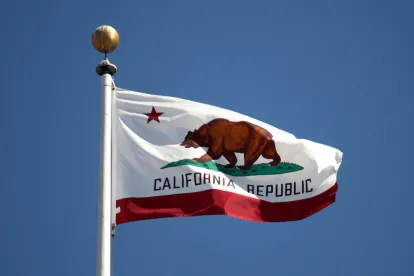On November 6, 2014, U.S. District Court Judge Lucy Koh of the U.S. District Court for the Northern District of California granted in part defendant Dole’s motion for decertification in Brazil v. Dole Packaged Foods, LLC. In May of 2014, the court had granted certification of classes under both Federal Rule of Civil Procedure 23(b)(2) and Rule 23(b)(3). In its November 6 opinion, the court decertified the 23(b)(3) damages class because the plaintiff’s damages model failed to satisfy Comcast Corp. v. Behrend, 133 S. Ct. 1426 (2013), and left certification of the 23(b)(2) injunction class intact. The court’s analysis of the plaintiff’s damages model provides guidance on the weaknesses and pitfalls of using a hedonic regression model to measure damages.
The plaintiff claims the labels of ten Dole products are false and misleading due to their use of the phrase “All Natural Fruit.” The products at issue contain ascorbic acid and citric acid, which the plaintiff alleges are synthetic ingredients. The 23(b)(3) certification was based, in part, on the court’s approval of a damages model, which the court found consistent with the plaintiff’s liability case as required by Comcast. The plaintiff’s expert later provided a hedonic regression model which purported to determine the price premium attributable to Dole’s use of the “All Natural Fruit” label. Dole moved for decertification of both the 23(b)(3) damages class and the 23(b)(2) injunction class.
The Court Decertified the Damages Class Because Plaintiff’s Model Failed to Satisfy Comcast.
Dole’s main argument in support of decertification of the damages class was that the plaintiff’s regression model was “fundamentally flawed.” Dole advanced a number of arguments on this topic, many of which the court rejected. The court was persuaded, however, by four of Dole’s points, and found that, for those reasons, the regression model failed to satisfy Comcast.
Failure No. 1: The plaintiff had failed to show how the regression model controlled for other variables affecting price. In particular, the model failed to control for the defendants’ advertising expenditures. As a result, the court could not identify how much of the price premium was a result of the “All Natural” label, and how much was a result of higher advertising expenditures.
Failure No. 2: The plaintiff’s expert had failed to properly control for the prices of competing and complementary products because he relied on various assumptions that were either false or untested. The expert failed to verify that the non-Dole products he selected for the model actually did not have “All Natural” on their labels. As a result, the court could not determine whether the price premium identified by the model was based on the labeling claim or some other factor.
Failure No. 3: The plaintiff’s model failed to account for the effect of multiple labeling claims on one label, and the effect of differences in product packaging. The model left the court with no method of determining how much of the identified premium was from the “All Natural” claim versus a “No Sugar Added” claim or the convenience of certain product packaging. Similarly, the court had no method of determining how much of the price premium was attributable to a consumer’s preference for “four packs” of product versus larger cans.
Failure No. 4: The last scenario in the plaintiff’s model independently failedComcast because it borrowed the hedonic regression coefficient from a prior study involving yogurt labels. The plaintiff failed to explain why that study was applicable to Dole’s labeling claim.
The Court Rejected Dole’s Argument That the Classes Should Be Decertified Because They Were Not Ascertainable.
Dole argued that the classes should be decertified because both the damages class and injunction class were not ascertainable. The court rejected this argument, holding the plaintiff had adequately defined the class based on the objective criterion of purchase of an identified Dole product within the class period. The court noted that class members would only have to recall whether they purchased any challenged product, all of which bore the challenged claim within the class period. Because this was the only argument Dole advanced in support of decertifying the injunction class, the court declined to decertify that class.
Judge Koh’s decertification order in Brazil v. Dole provides guidance to parties seeking to present, or challenge, damages models in small consumable class actions in this post-Comcast world. Defendants seeking to challenge regression models should pay close attention to the court’s discussion of these issues.



 />i
/>i
